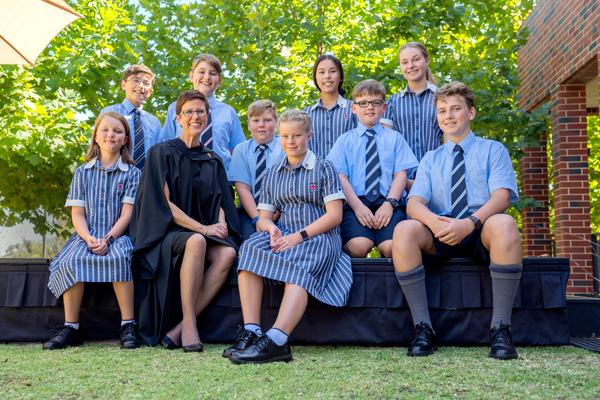Anne Dunstan became the Principal of Guildford Grammar School in January 2020. SMJ talked with Anne to find out how she approached (and even embraced) this very different year.
SMJ: Describe Guildford Grammar School.
AD: The best place to start would be the fact that Guildford Grammar is a school not frightened to reinvent itself. A stunning school with a magnificent heritage — one of the longest standing schools in Perth — it has thought very carefully about who it wants to be and who it’s for. It is an inclusive place with a strong focus on a holistic education within a strong community. The carefully planned shift to coeducation is progressing well.
Being appointed as the new Principal in 2020 felt so right for me. However, there is always that process of discernment during any recruitment process to ensure that I would be the right fit for the School. Having been the first female Principal in a school that used to be a school for boys and young men and is now coeducational, I felt reasonably confident that I knew the landscape, the opportunities and the challenges.
I could see that Guildford Grammar was grounded in community and that it valued learning for learning’s sake. I believe schools and educators can become too easily caught up in the dialogue around preparing young people for the workplace or life beyond school. This frustrates me because young people are living life right now and have capacity and agency no matter what their age. Guildford Grammar School is a great fit, as it values learning and wants to inspire the love of learning — not just in the students, but in anyone who comes into contact with the School.
SMJ: Describe yourself and your educational pathway.
AD: As a graduate of classical studies, I found I had to teach almost every other subject, as it was dropped from the curriculum in my first year of teaching. I went on to teach basically anything from English, History, Drama to Health Education, Australian Studies and Food Technology. The economy was in a recession, so I also worked for a brief time in the insurance, banking and hospitality sectors, all of which taught me important skills for my future.
I was recently told that I’m seen as a risk-taker and I admit that I’ve always been driven to try something different. The last four schools I’ve had the privilege to work in have all been willing to reinvent, adapt and push boundaries, particularly Scotch Oakburn College in Launceston. I went to Tasmania because I wanted to experience a different education jurisdiction and because Scotch Oakburn was doing amazing things that I wanted to be part of.
The College had combined two separate single-sex schools into a united coeducational school many years before, but was still very deliberate about honouring the traditions of the previous schools. The Principal had a keen eye for marketing, diversifying the College’s offering and a focus on the student and parent (essentially our customers) experience, and instilled that mindset into me.
From there I went to Pulteney Grammar School in Adelaide, another school that is the master of reinvention. It’s 173 years young, began as a coeducational school, then catered for all boys and has since transitioned back, recently celebrating its twentieth year of full coeducation.
I am attracted to leading schools that want to constantly look ahead and over the horizon. It’s about trying new and different things, becoming a place of learning that reflects society, being inclusive and also willing to take calculated risks.
I believe that education is the profession where you can provide the greatest good for the greatest number because our students have the capacity to change our world. There aren’t many vocations that allow you to have such an impact on so many in such tangible ways, and that is what drives me.
SMJ: What does school marketing mean to you?
AD: First and foremost, it begins with putting the student experience first. Being clear about our purpose and finding ways to show this in action, every day, is vital. Following this, sharing those compelling student stories and experiences with the broader community brings new people in. These stories help you retain and keep people engaged, then they become your ambassadors.
Ultimately, those advocates become the people who support the school, your brand, and grow the community. Marketing also works to attract the best staff, as you’re only ever as good as your team. Marketing inevitably aims to feed your enrolments pipeline, but to deliver the highest quality educational service you must attract the very best people who want to immerse themselves in the life of the school. These people strengthen our relationships with our community.
Marketing also plays a key role in continuously re-engaging your internal customers; it’s important to inform and inspire them to be excited about the great things happening at your school.
This never-ending cycle is about people. You’re trying to win hearts and minds, and then keep re-engaging them so that they become the school’s greatest ambassadors. These stories have to be authentic so that the connection is genuine and consistent in every single experience.
SMJ: This year — your first at Guildford — the school welcomed its first girl boarders and the world was hit with COVID-19. How has your year gone?
AD: I’ve heard a lot of Heads say that they have needed to demonstrate their vulnerability more overtly this year. At Guildford Grammar, we carefully planned our School’s response, invested time consulting with people, made decisions and, sometimes, we had to reverse those decisions the very next day; even the state and federal governments were doing it! Our messaging needed to reflect this fluid environment, openly embracing some of the uncertainties, whilst giving confidence that we were making decisions with the students’, staff and community’s health and welfare at the centre.
We learned that we had to be agile, authentic and clear about what we did not know. We also reduced the number of channels we were using to communicate our messaging — providing a ‘single source of truth’. Schools often over-communicate with parents and they become overloaded and miss important information. A major piece of work over the coming months at Guildford Grammar School will be to rationalise and streamline this volume of information.
Our first female boarders have had a wonderful year and I have been so impressed with the way our boarding community is evolving. Beginning with 18 girls this year, we will be increasing our numbers to nearly 40 in 2021 and moving to our new multi‑level coeducational facility which will house over 130 boarders.
SMJ: What is your community engagement strategy and how important is marketing for any independent school?
AD: It starts by making sure the messaging is right and underpins our purpose and values. We don’t write anything without referring back to our overarching purpose. For any independent school, it’s important to know your ‘north star’ — your purpose — in order to articulate the value proposition of your school.
Consistency is vital. Whether it’s video, traditional media or social media, we work to maintain a consistent voice. Currently, we are engaging all staff in co-creating a framework that expresses what our purpose looks like in action. We believe it’s important to have a discussion about what is ‘an education worth having’, looking beyond our School to explore the possibilities of education more broadly. This speaks to my earlier point that Guildford Grammar is a school community that seeks to contribute and to innovate.
SMJ: What areas are you looking at to develop your communications strategy into the future?
AD: We plan to challenge conventional thinking about education pathways, because what success looks like in the future might not be what we have believed previously or currently believe. None of this will be possible without a sound marketing strategy and communication, so we’re looking at content development in order to engage our School and wider community stakeholders (including other schools, universities and employers), and to position ourselves as leaders in this area.
Another priority for me this year has been to connect with my School families more. Regional border closures due to COVID-19 prevented me from doing so — a real challenge for a new Principal in a boarding community! As soon as I could, I went to visit regional and farming communities to simply meet people — existing boarding families and others — to learn more about them and our Western Australian regions.
A core part of our enrolment strategy is proactive retention, rather than reactive retention. This means we communicate openly with our students and their families, addressing any matters they have before they potentially become concerns. COVID-19 challenges certainly increased the opportunity to practice this and we have committed to a 48-hour turnaround in communications (email and telephone calls) with both our internal and external stakeholders.
An incredibly important element of school communications is to have high quality photography and visuals that really reflect the school and the community. It can be a false economy to scrimp and save on photography and video when it can make such an impact when delivering vital, core messages, as well as a positive impression on prospective families. It can also create a sense of pride for everyone currently at the school.
SMJ: Introvert or extrovert?
AD: I’m an introvert who’s very good at pretending to be an extrovert. I am actually an incredibly private person who loves nothing better than talking to my plants in my garden. However, I love the many interactions I am able to have each day with all of my students, staff and families — schools are thriving networks of people, after all!
Insight applied
- Be agile, authentic and honest.
- Marketing includes seeking to attract the best staff.
- Continuously re-engage your internal customers through communication.
- Rationalise and streamline your information channels.
- Embrace a proactive rather than reactive retention strategy.
- Tell your school’s stories to win hearts and minds.






